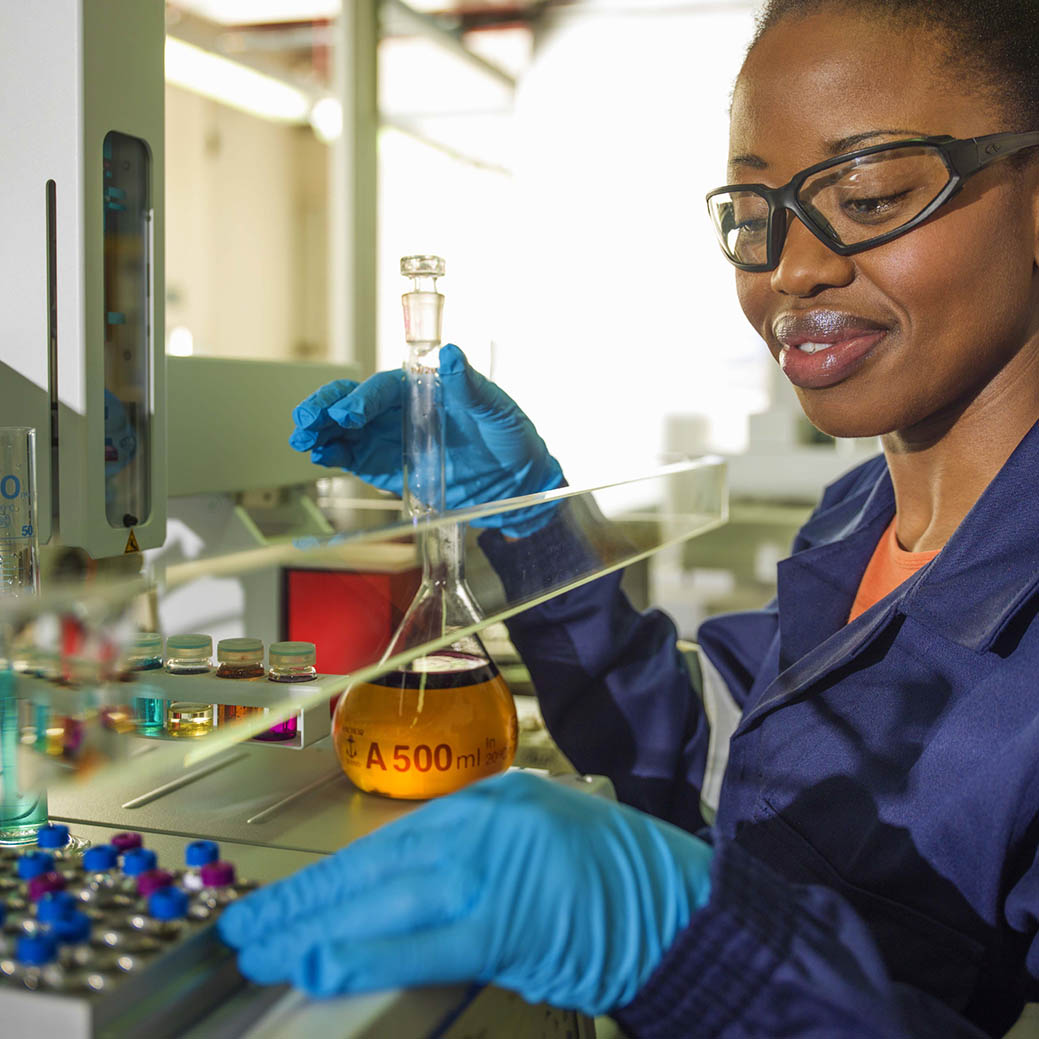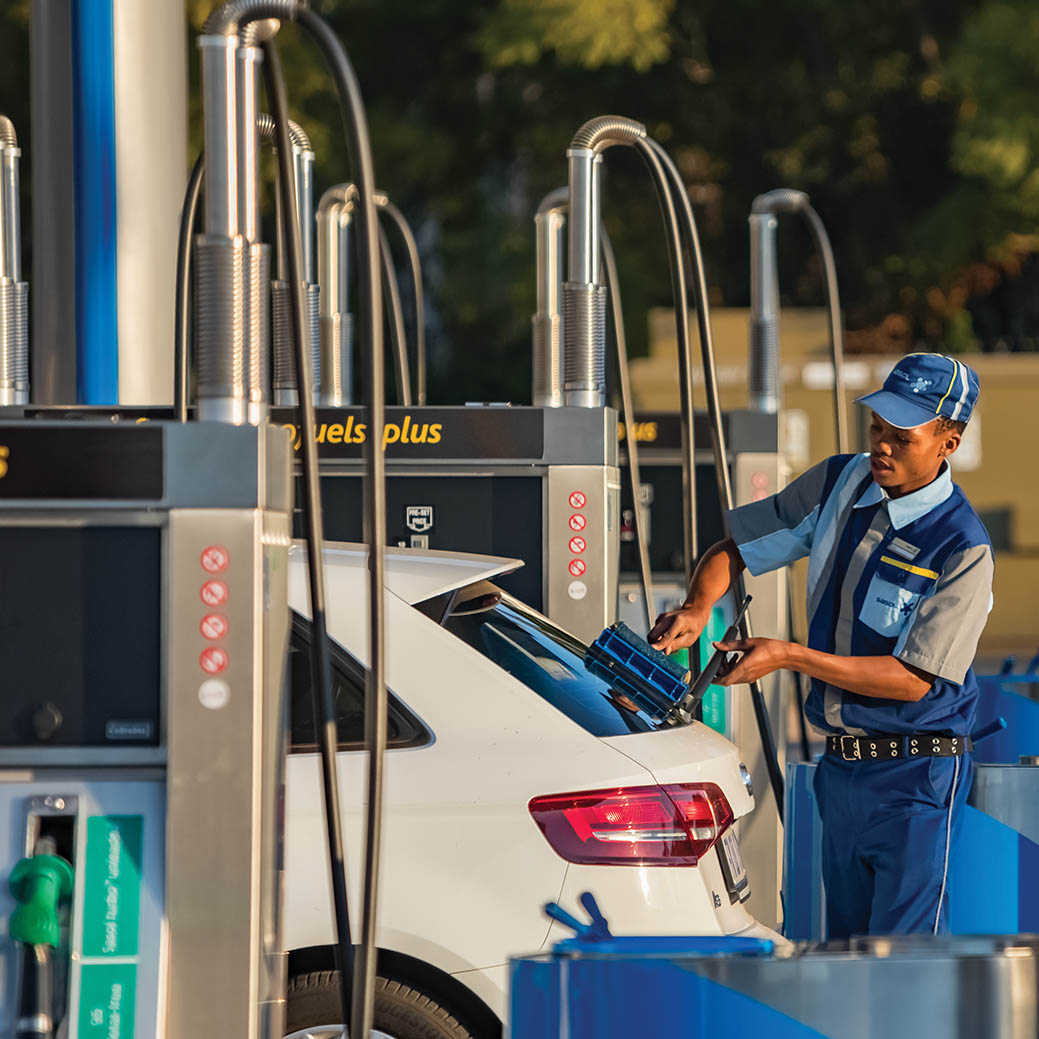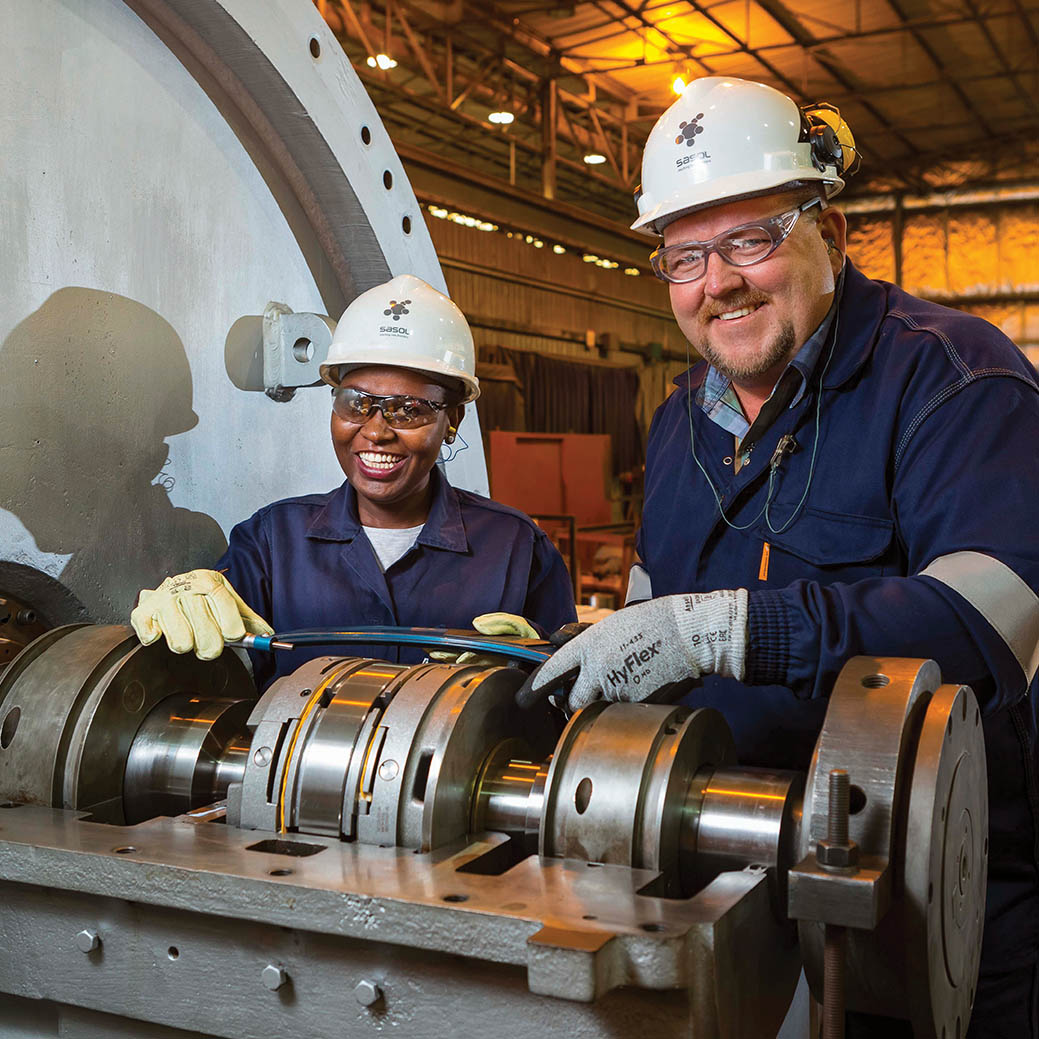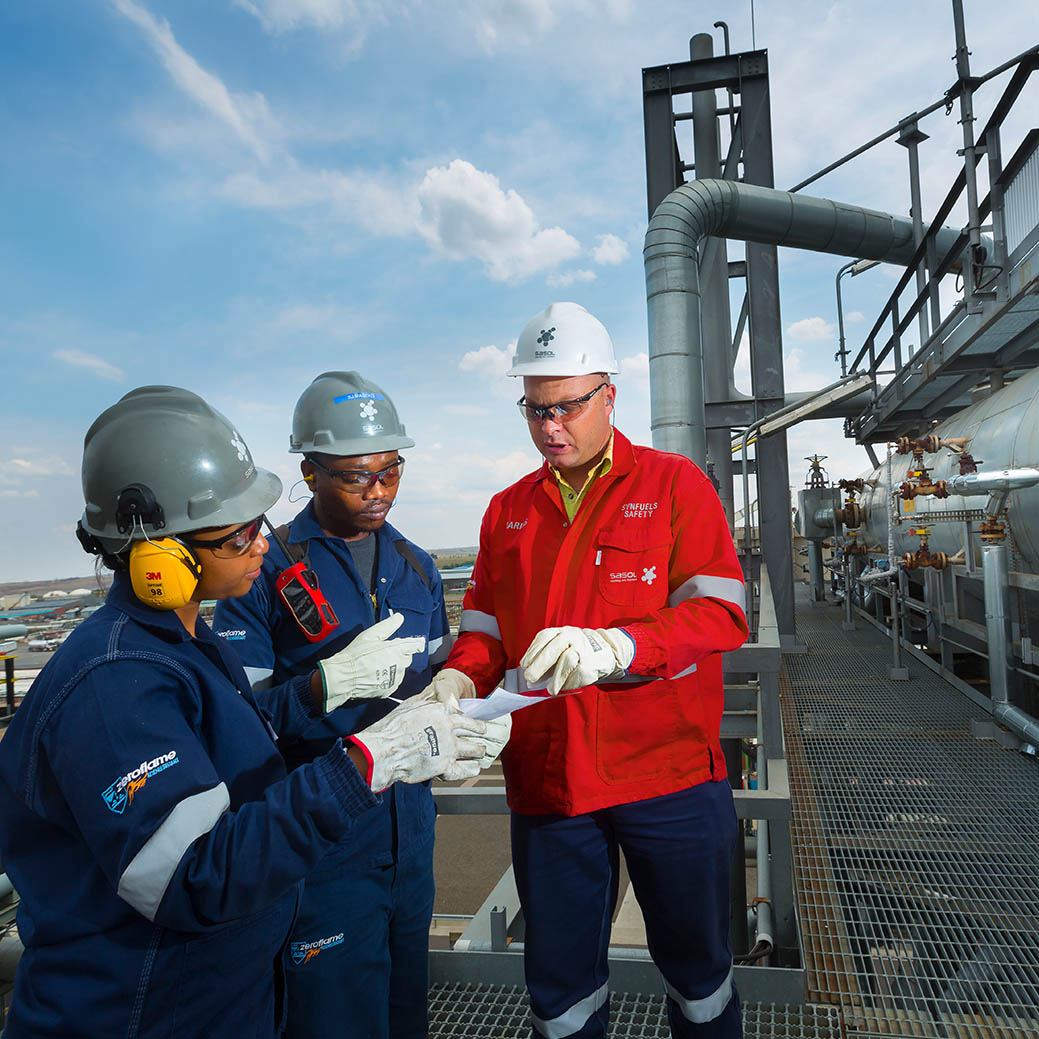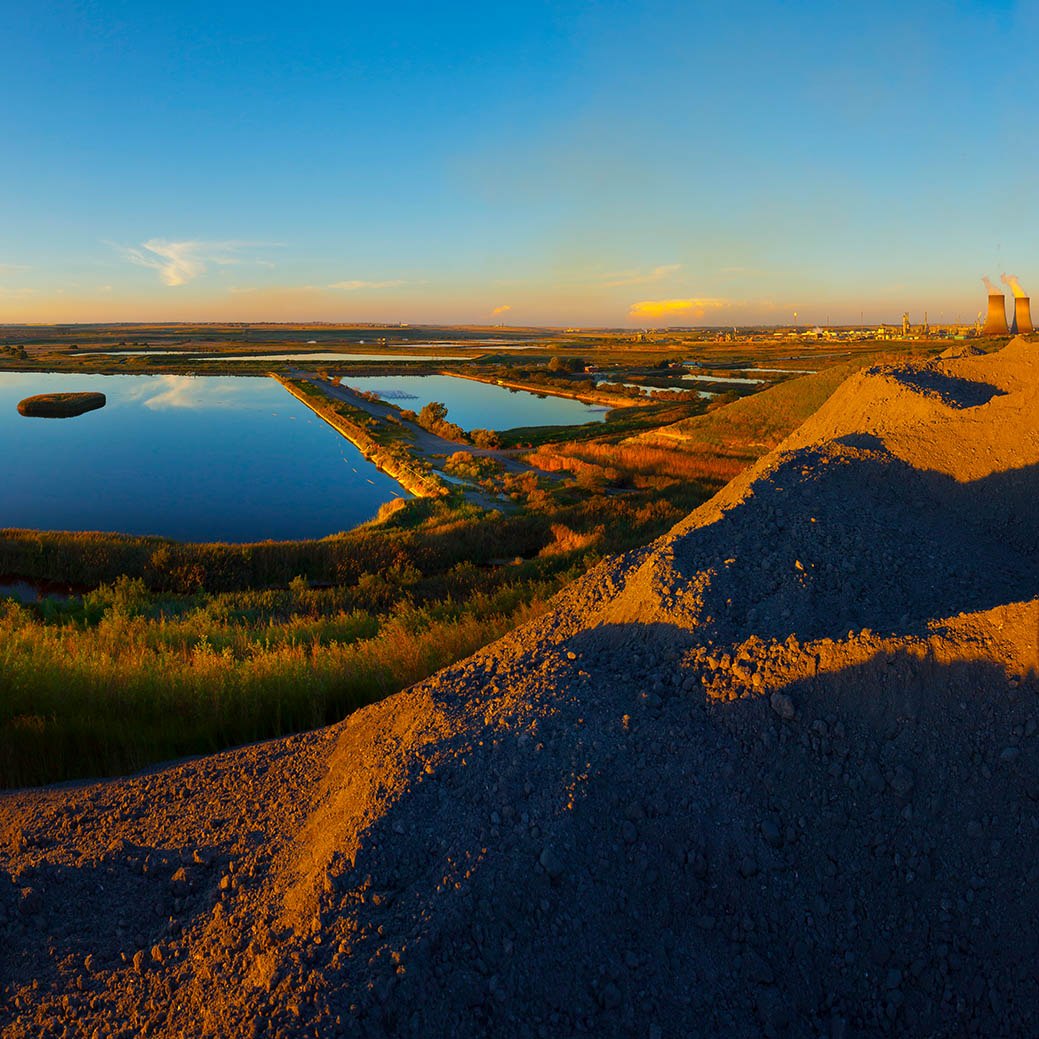In 2021, Sasol made a pivotal commitment to climate action by responding to global calls for greater ambition in emissions reduction. We set a more ambitious 2030 reduction target, aligning it well below 2°C, and defined our 2050 net zero ambition, ensuring it is aligned with the 1.5°C goal of the Paris Agreement. This was a significant step in our roadmap, reflecting our dedication to supporting global climate goals.
Climate Action
Our climate action
Climate change is a defining challenge of our time, with impacts threatening our critical ecosystems, habitats and resources. Sasol supports the Paris Agreement and its calls for higher ambition. We have deepened our commitment to this cause through our updated and newly-developed roadmaps, targets and ambition for the short, medium and long term.
In 2021, we launched our 2050 net zero emissions ambition ("Net Zero") and Future Sasol strategy, which places us on a trajectory towards a significantly reduced GHG emissions profile. We have plans to deliver significant reductions in scope 1, 2 and 3 (Category 11) emissions by 2030.
Future Sasol is premised on producing sustainable fuels and chemicals, using our proprietary technology and expertise, while contributing to a thriving planet, society and enterprise. This will see Sasol transform and decarbonise, in particular our Secunda and Sasolburg Operations as outlined in our roadmaps.
Climate policy advocacy
Stay informed as we navigate the ever-evolving landscape of regulations and climate change policies that impact our industry. Our commitment is to ensure that you are equipped with timely, relevant insights and analyses on key legislative changes, policy initiatives, and advocacy efforts. Here we provide you with the resources and updates needed to understand the implications of climate change policy shifts and how they shape our collective future.
OUR TRANSITIONING TO NET-ZERO
As we continue to advance towards net zero, we are exploring and investing in techno-economically feasible on-site mitigation options. These innovations are not just about compliance but are essential steps in contributing to South Africa’s Nationally Determined Contribution (NDC) and our own long-term sustainability.
We have identified that the most significant contributor to our scope 3 emissions is from Sasol Energy's sold products, particularly in South Africa. Recognizing the scale of this challenge, we understand that reducing these emissions requires fundamental changes to our business model—a transformation we are already assessing as part of our broader business-building efforts.
Given the current technical and economic barriers to completely eliminating greenhouse gas emissions, we strategically incorporate carbon credits and other market mechanisms. These tools are vital in offsetting emissions that cannot be immediately mitigated.
Transparency is at the heart of our approach. We ensure that all carbon credits used for regulatory purposes are disclosed annually at a project level in our CDP disclosures. This level of transparency helps us maintain accountability as we progress towards our net zero ambition.
As we move forward, our commitment to climate action remains unwavering. We continue to evaluate and innovate, ensuring that our strategies are aligned with global climate targets. While we have received recognition for our innovative approach, we also acknowledge the critiques and remain committed to an objective and transparent assessment of our progress.
Our ultimate goal is to reach net zero by 2050. This journey is not just about reducing emissions but transforming our entire business model to align with a sustainable future. We understand that this path is challenging, but with continuous innovation, strategic planning, and transparent reporting, we are confident in our ability to achieve this critical objective.
WITH THIS VISION IN MIND, WE HAVE:
- significantly increased our 2030 target from at least 10% to 30% for scope 1 and 2 emissions for our Energy Business as we progress towards Net Zero by 2050;
- set a 2030 scope 3 target, aiming for a 20% emission reduction from the use of energy products for our Energy Business as we progress towards Net Zero for these emissions by 2050;
- and set a target to achieve a 30% reduction of scope 1 and 2 emissions by 2030 for our International
- Chemicals Business as we progress towards Net Zero by 2050.





